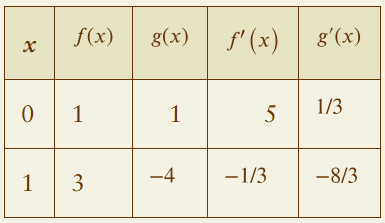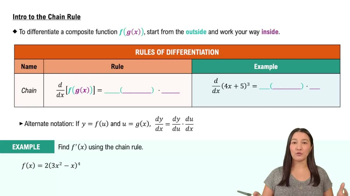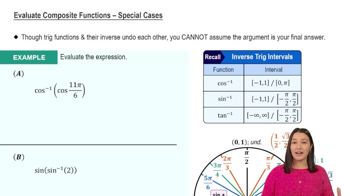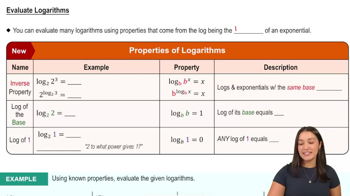Suppose that functions f and g and their derivatives with respect to x have the following values at x = 2 and x = 3.
" style="max-width: 100%; white-space-collapse: preserve;" width="250">
Find the derivatives with respect to x of the following combinations at the given value of x.
g. 1 / g²(x), x = 3







